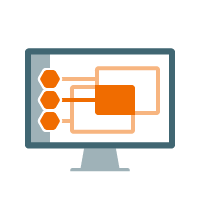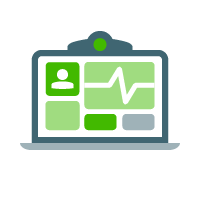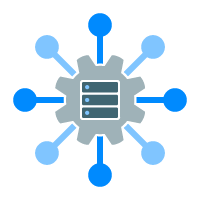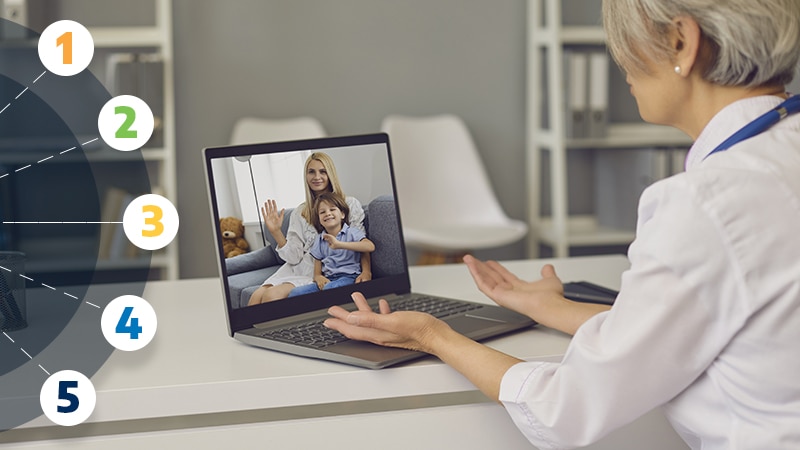Telemedicine Solutions
Deliver the Care Patients Want for Better Outcomes
The adoption of telemedicine was a challenge for healthcare organizations even before the emergence of COVID-19. With the pandemic, facilities had no choice but to innovate with virtual care amid the temporary pause on elective procedures and the ongoing patient reluctance to return to hospitals.1In the rush to implement or expand their telemedicine services, many hospitals found that their infrastructure couldn’t support the demand, and the delivery was clunky. Most organizations (63 percent) still struggle with issues like real-time analytics, interoperability, EHR functionality, remote patient monitoring, and ease of use.2 But the widespread telemedicine adoption among patients has forced hospitals to make due despite these challenges.3
Connection’s Telemedicine Solutions are designed to help healthcare organizations:
Ready to learn more about these offerings?
Call a Connection IT expert today: 1.800.800.00195 Categories of Telemedicine
The pandemic has changed many things, including the adoption of telemedicine. Prior to 2021, both reimbursement and the treatment of patients in states you were not licensed in proved to be problematic. However, due to the accelerated evolution of telemedicine we have all witnessed, these and other issues have been addressed. This has paved the way for borderless treatment and equity. Nevertheless, there is still much more to remote patient practicing than a quick videoconference. Watch this video with Dr. Keith Nelson, Director of Healthcare Strategy at Connection, to learn about the five categories of telemedicine, what they mean to you, and how they can be applied now and in the future.
Make the Right Investment with a Trusted Healthcare Technology Leader
For many healthcare organizations, the greatest barrier to implementing and expanding their telemedicine services is cost. But when done correctly, telemedicine yields tremendous returns.A 2020 Healthcare Financial Management Association article highlighted different ways healthcare organizations have benefitted from telemedicine. One hospital implemented a mobile platform for its post-surgery home recovery program that saved the organization almost $1,300 per procedure, with a 38.2 percent reduction in preventable readmissions and a 74 percent reduction in surgical site infections. Another organization reported a fourfold improvement in their provider-to-patient ratio, going from 1:25 to 1:100, after having patients input their indicators remotely.
To maximize the benefits of telemedicine, you need a trusted leader in healthcare technology to guide you through the process and ensure you get the most out of your investment. Connection’s healthcare experts will work with you to develop a custom Telemedicine Solution that won’t strain your busy staff or operational budget.
Boost Patient Engagement with Better Communication
Patients enjoy the autonomy and convenience of telemedicine. For most non-emergent health issues, they can receive the same level of care as they would in a hospital from the comfort of their homes. And with patient mobile solutions and remote monitoring, patients are more engaged in their own care and can provide insights into their home environments that would otherwise be a blindspot for their providers.Our experts will ensure you get the most out of your telemedicine investments and help you enhance your organization’s:
- Provider-to-patient communication
- Provider-to-provider communication and collaboration
- Provider-to-satellite location communication
- Inpatient and/or remote patient monitoring
Connection’s Telemedicine Solutions are ideal for inpatient, long-term care, and ambulatory organizations of all sizes.
Our offerings include three components: software, hardware, and infrastructure services. You can pick and choose these elements individually or all together in a single solution, depending on your organization’s needs.

Telemedicine Solutions
 |
Software PlatformTo ensure the success of your telemedicine program, you need a platform that is reliable, efficient, and user-friendly. The platform also needs to integrate seamlessly with your existing EHR, PACS, video, monitoring and/or diagnostic equipment, security, charge capture, insurance processing, appointment scheduling, and more. Connection offers multiple market leading platforms for you to choose from. And we provide hands-on support to ensure whichever platform you choose integrates with all your existing technology. |
 |
Telemedicine HardwareConnection offers an array of system hardware components, including laptops, monitors, cameras, keyboards, mice, and barcode scanners, as well as diagnostic equipment, including remote glucometers, ECG machines, stethoscopes, ophthalmoscopes, otoscopes, thermometers, oximeters, and more. You can also get a preconfigured telemedicine cart customized to fit your needs. |
 |
Infrastructure ServicesYour telemedicine services can only be as good as the infrastructure that supports your software and hardware technology. Connection has numerous partnerships with top manufacturers and the professional services to address all your infrastructure needs, including: |
Connection Community
Healthcare’s Data Governance Mandate and...
Because of the vast amount of sensitive PII and financial data it holds, the healthcare industry is a frequent victim... Read More
Harnessing AI with NVIDIA: A...
I sat at a communal table with two colleagues on the lush grounds of the NVIDIA corporate campus, each of... Read More
Key Considerations When Designing the Next...
The digital transformation of healthcare has radically changed hospital design. At the heart of this transformation lies the patient room,... Read More
Federal Health IT Strategic Plan and Modern...
This image was generated by AI. In my first three Connected Blog posts in this series, The Federal Health IT... Read More
AI for Providers, Life Sciences, and Payers...
Between 2019 and 2022 alone, healthcare organizations saw a 22% increase in per-patient costs. As the demands and costs of... Read More
2 Becker’s Hospital Review, “63% of Hospitals Still Struggling with Real-Time Data Analytics During Pandemic,” August 2020.
3 Fierce Healthcare, “Telehealth Could Grow to a $250B Revenue Opportunity Post-COVID-19: Analysis,” June 2020.
4 OrthoLive, “New Study Shows Telehealth Saves $1,500 Per Visit,” May 2019.





